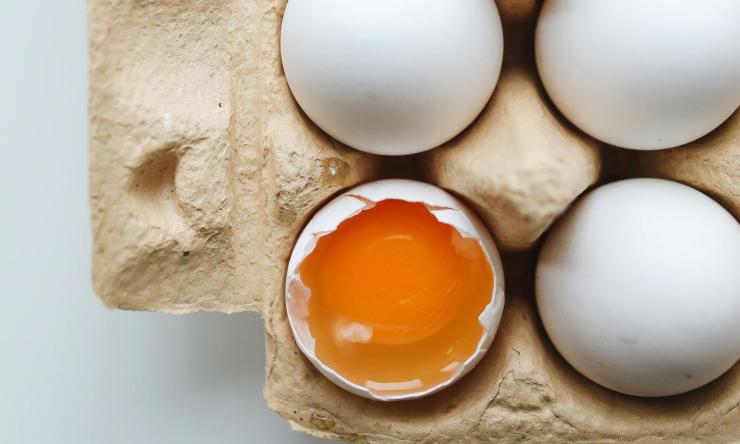Egg substitutes for "egg-heavy" holiday meals
With the price of eggs on the rise and an egg shortage at grocery stores as well as Easter, an “egg-heavy” holiday, just weeks away, many may wonder what to do if they cannot get their hands on the coveted poultry product. Registered dietitian Lisa Froechtenigt shares what egg substitutes to use when making holiday meals and desserts.
"Eggs are a versatile food and are natural emulsifiers. They help bind foods together and they act as a leavening factor," Froechtenigt said. "Eggs are also known to be nutrient-dense. One egg usually contains about 6 grams of protein and yolk that contains a lot of vitamins and minerals."
For baked goods, like cookies or cake, bananas, avocados, flaxseed meal, applesauce or seltzer water are good egg substitutes. However, most of these options don't contain protein.
"Those who are vegan can look into pea protein or plant-based liquid eggs," Froechtenigt said.
Other egg substitutes with protein are peanut butter, non-vegan options like cottage cheese, Greek yogurt and chia seeds. Chia seeds have about 5 grams of protein per 1 ounce serving.
If you don’t have eggs for deviled eggs, you can form a plant-based liquid egg product into an egg mold and use potatoes to act as the yolk filling or even avocado as a base for the filling.
"Tofu is also an affordable protein option where you can add different flavors," Froechtenigt said.
Eggs are in high demand across the country, and if you are running low in preparation for Easter, Froechtenigt says to be mindful of the expiration date – you can go a few weeks past this date and the eggs should still be good to consume if they do not have a foul smell and are not discolored. A way to test if an egg is still okay to eat is to put it in a glass of water. If the egg sinks to the bottom, it is still good to eat. If it floats, it has started to go bad, as air has gotten inside, and you should avoid consuming the egg.










